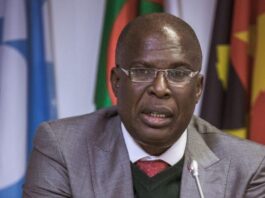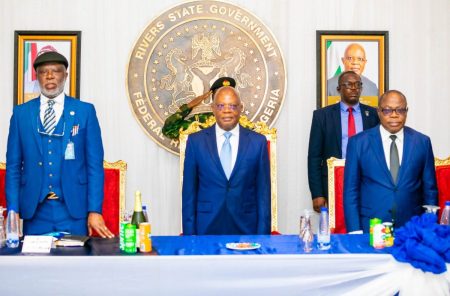
Lagos — The Nigerian Oil and Gas industry is currently in the phase of exploring opportunities and potentials associated with the midstream and downstream sectors.
The Minister of State for Petroleum Resources, Chief Timipre Sylva disclosed this at the just concluded Nigerian Content Midstream and Downstream Oil and Gas Summit organized by the Nigerian Content Development and Monitoring Board (NCDMB) in Lagos.
He stated that the midstream and downstream sectors did not receive the deserved focus in the past but the situation is set to change because the recently enacted Petroleum Industry Act (PIA) has introduced a governance frame work for the industry with clear description of roles between regulation and profit-centric business units.
“The Act contains fiscal incentives to attract investment in gas development and local refining; it also provides exceptional care for host communities and future energy security through dedicated funding renewable energy development and local content”
He said that under the “Decade of Gas Initiative”, gas has been declared a transition fuel towards Actualization of a net-zero carbon emission and the government has supported critical projects
“We must find ways to unlock the natural gas and domestic production potentials of Nigeria and drag millions of our people out of energy poverty”
The Executive Secretary, NCDMB, Engr. Simbi Kesiye Wabote affirmed that the Board is keen to maximize Local Content opportunities in the midstream and downstream sectors because they offer the greatest number of employment opportunities as well as longevity of jobs.
He added that the profit margin is also attractive in the midstream and downstream, especially in the LPG distribution value chain and this serves as an incentive to attract a wider number of players.
Specific to the gas industry, Wabote stated that in line with the “Decade of Gas” Declaration, The National Gas expansion program (NGEP) which entails Domestic LPG Expansion, Auto gas and power Generation have been put in place adding that The Domestic LPG Expansion element of the programme targets 20 million homes to increase the country’s LPG penetration currently estimated at national average of 13%”
Dwelling on the LPG value chain, He stated that the Board had gone into partnership with some investors to develop different areas of the value chain some of which includes Partnership with NEDO Gas Processing Company in Kwale, Delta State for the establishment of 80MMscfd of Gas
Processing Plant and a 300MMscfd Kwale Gas Gathering hub, Partnership with Triansel Gas Limited in Koko, Delta State for the 5,000MT LPG Storage and Loading Terminal Facility,
Partnership with Brass Fertilizer for the development of a 10,000MT/day Methanol
Plant at Odiama in Brass. Other Partnership includes partnership with Butane Energy , Southfield Petroleum, MOB Integrated and Amal Technologies.
“Our touchpoints in the LPG value chain covers inland LPG production, LPG jetties/terminals, storage facilities, inland transportation, cylinders manufacturing, bottling, and retail”
He said the world Gas conference is holding this week in south Korea and one of the key highlights at the event is the signing of the agreement to construct the 2nd LPG vessel to further enhance the supply capability of the LPG across the country.
He emphasized the need to maximize the potentials of the midstream and downstream sectors to ensure energy security and national pride.
“Let’s identify means of further domiciliation and domestication, utilization of local technologies, develop strategies for organic penetration to make energy sources Available, accessible, acceptable and affordable within one mile radius within the Decade of Gas end date 2030” He urged.
Follow us on twitter



